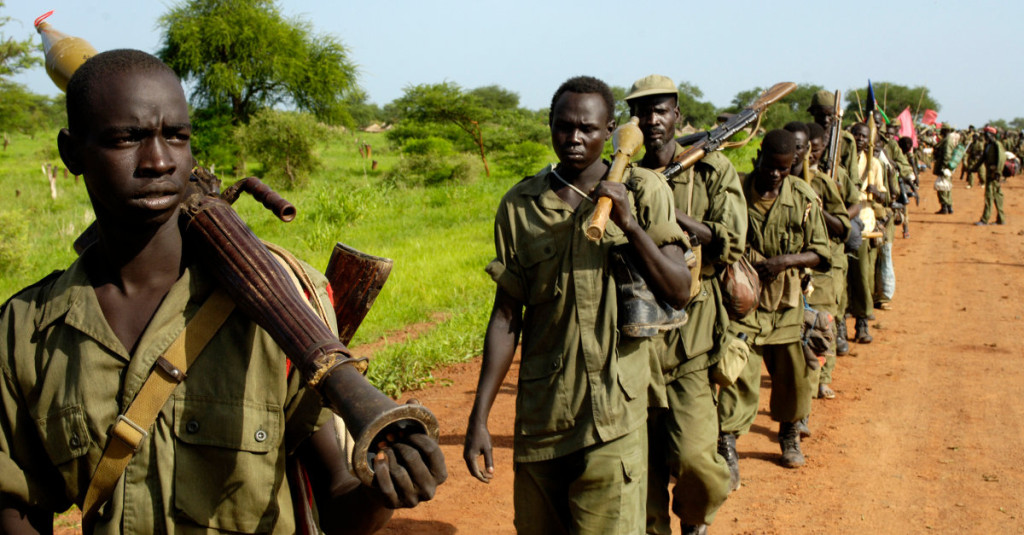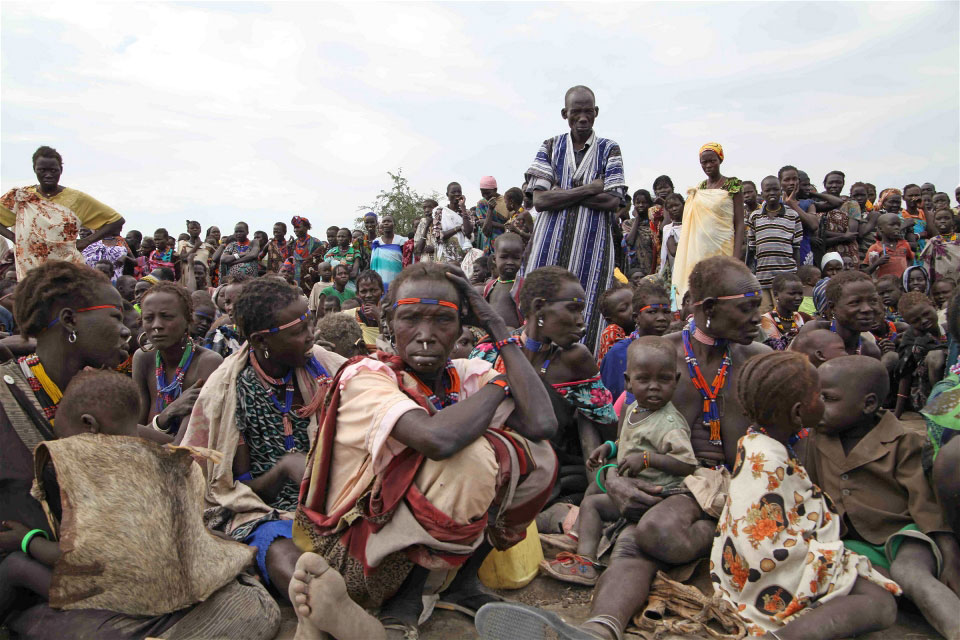By Betre Yacob.
 South Sudan has banned foreign experts from employment in the country and orders companies and organizations including aid agencies operating in the country to terminate existing contracts of foreign staffs. The restriction is feared that it would fuel the humanitarian crisis in the country.
South Sudan has banned foreign experts from employment in the country and orders companies and organizations including aid agencies operating in the country to terminate existing contracts of foreign staffs. The restriction is feared that it would fuel the humanitarian crisis in the country.
Reports show that the war-ton South Sudan is currently in the face of much more serious famine, and the situation could become more deadly if the international community don’t act as quickly as possible.
The government, however, says the restriction is set for the benefit of the citizens of South Sudan, and doesn’t pose any threat to the nation. “You need to give employment to the citizens except in those places where there is no capacity,” Foreign Minister Barnaba Marial Benjamin told to Reuters news agency.
“You find in some companies and NGOs it is 100 percent foreign, and that is why the citizens were complaining (about) not being employed when we have the capacity” he explained.
Many agree that the ban is a measure which would worsen and complicate the political and human right crisis in the country ravaged by brutal civil war. It is supposed to massively disrupt the effort not only to control the humanitarian crises but also to bring about peace in the new born nation.
The aid agency Oxfam, which is working in south Sudan, is among humanitarian organizations expressing their concern over the new restriction. Alarmed by the ban, Oxfam has called up on the government of South Sudan to drop the restriction and focus on how to overcome the challenges the nation has faced.
“We need to be expanding aid programmes in South Sudan, not restricting them,” said Tariq Riebl the Humanitarian co-ordinator of Oxfam while speaking to journalists yesterday. “South Sudan is on a knife-edge and could easily tip into famine in 2015. If this order were to come into effect it would disrupts the aid programmes across the country, which feed over one million people.”
Otolo Makur is a journalist in South Sudan and he is among those opposing the new ban. He said the restriction is not something they can simply ignore. “It is what all South Sudanese, who wish peace in their country, and people living in the region should oppose” he said.
Otolo says humanitarian workers are not only managing the aid service but also playing a key role in reporting human right violations and crimes perpetrated in the country to the international community. He believes that to expel these workers will plunge the nation in darkness and allow criminals to do whatever they want.”
The ongoing fierce conflict in south Sudan has breakout on December 15, 2013 and caused the loss of tens of thousands of lives across the country complicating the long standing problem in the region.
According to reports, the fighting has forced more than a million people from their homes, and driven 1.5 million South Sudanese from their homes with almost 5 million left in dire need of humanitarian assistance.
Human Right Watch (HRW) reports that the atrocities in South Sudan amount to war crimes. In its recent report published on August 7, 2014, it says: “Human Rights Watch interviewed more than 400 survivors and witnesses and documented numerous attacks on ethnic Nuer civilians in Juba during the early days of the conflict, including a massacre, unlawful killings, round-ups, detentions, and torture.”



